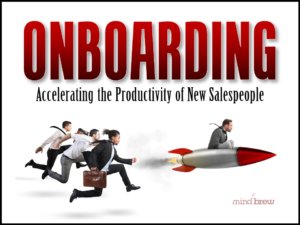Do you remember the joy you felt as a kid on the last day of the school year?
For most of us, the thought of three months of freedom, the thought of never having to crack open another textbook, of never having to do any homework and being able to do whatever we wanted was just short of intoxicating. In fact, you may even be smiling right now remembering summer vacation.
So why are we surprised when salespeople grumble and complain when we force them to go back to “school” by attending training sessions?
Making matters worse, it’s far too easy for B2B firms to fall into an ineffective training cycle. First, management “discovers” some new approach or mindset that they believe will solve all of their problems. They force the sales staff to attend a few sessions or a workshop, but the salespeople really don’t care about the information presented. To them, it’s no more relevant to their daily lives than the trigonometry or Russian literature classes they were forced to take in school. In their minds, they already know how to do their jobs, and training is just time away from selling.
Inevitably, the new sales training fails to achieve its desired goals. Management shelves that approach until they find something new that catches their fancy and promises to solve all their problems.
And the cycle goes on quarter after quarter, year after year, without training ever having a measurable impact on sales.
The key to breaking that cycle and delivering effective sales training is to operationalize the training.
What do we mean by that?
It never works to approach sales training as a one-time thing. If it’s going to be effective, training in a given methodology needs to be a part of your sales team’s life from their first days on the job until they leave.
Your sales training should be part of your onboarding process in such a way that no one is going out into the field until they thoroughly understand your sales methodology. You need to offer refresher classes and visual aides to keep the material fresh in their minds. You should adopt the terminology presented in your training and use it every day in your conversations about prospects and customers. You should align all of your processes and procedures with your sales training. And ideally, the metrics you track and even your compensation program should reinforce the methodology presented in your training program.
Obviously, this sort of integrated, long-term program is much more difficult to set up and execute than just sending everyone to an interesting-sounding seminar. But it will be orders of magnitude more effective than any bolt-on program could ever be.
To learn more about the best way to set up this sort of training program, check out the tutorial How to Deliver Sales Training That Sticks. It will walk you through a seven-step process for creating a program that actually meets your goals.
Forcing your staff to attend training sessions where they learn information they aren’t ever going to put into practice is a waste of time and money—for them and for you. But effective training can yield significant rewards—for them and for you.











